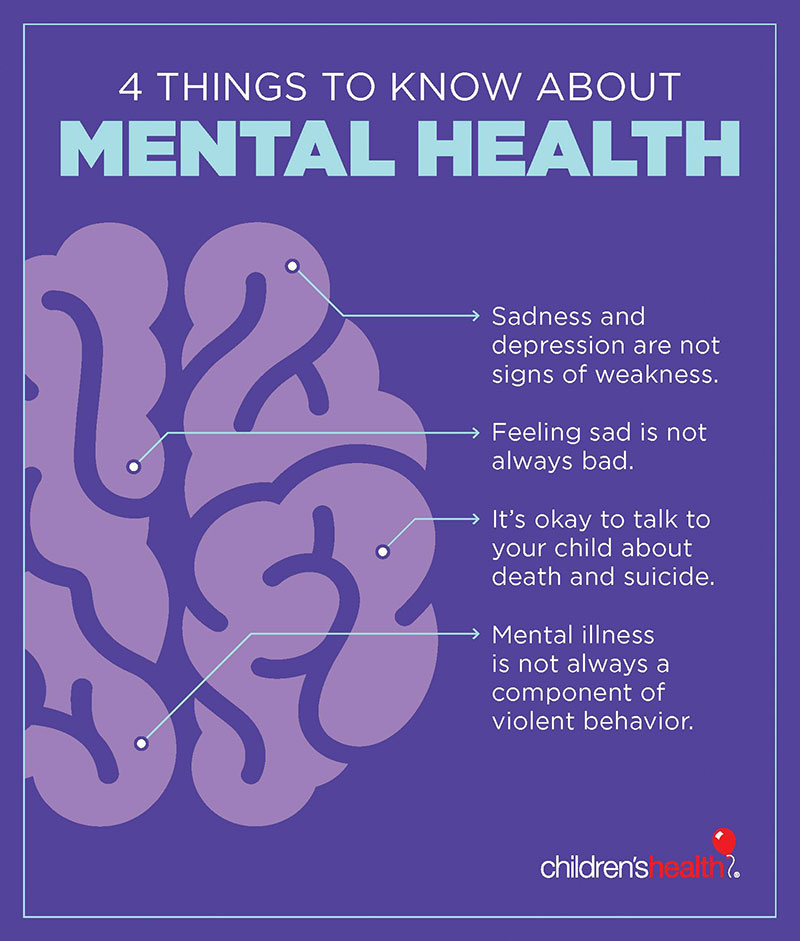Misconceptions about Mental Illness
In today’s world, life is so fast paced, people are too busy in their careers and striving towards achieving their goals. Nobody would deny the fact that there is a time in everyone’s life when they feel that they have hit the rock bottom. It may be due to dejection, failure, relationship stress, socioeconomic status, low education attainment or various other reasons. Such situations can adversely affect some people. Falling into depression and having anxiety are the worst out of the consequences.
There are numerous people dealing with such issues due to some reason. Medically, these issues are termed disorders. Although, such issues might be termed mental illness but beware being clinically insane is not the same! Ever wondered how they feel while sharing about their struggles? Below are a few misconceptions about mental illness prevailing in our society which makes opening up about their problems an issue in itself.

Myth 1: Having a mental illness means you’re clinically insane.
Fact: Having a mental illness does not mean that you’re insane. It simply means that you are vulnerable to emotional imbalance and that you have been through a situation that has skewed your perception of reality. Everyone is susceptible to bad times in their respective lives. In times like these, person should be provided with maximum support. Thus to help them get through such rough times. The fact that there is word for the stigma associated with mental illness called “sanism” depicts how deeply misconceptions are rooted in society. Just like racism or sexism, it is a form of oppression and discrimination. Therefore, being aware is a social responsibility.
Myth 2: Seeking help for mental illness is synonymous to treating a crazy person.
Fact: Seeking help for mental illness is completely okay and in no way should be compared to treating a person who is crazy. Psychiatrists and psychologists can actually help you get through situations where you need external help. mental and physical issues are to be given alike importance. There are some attitudinal barriers that hold a person back from seeking the treatment. People are afraid of the consequences of treatment rather than the location and the cost of the treatment. Never hesitate to talk and never let anyone’s perception scare you from getting the help you need.
Myth 3: Mental Illness problem is forever and their medications are of no use.
Fact: Unlike schizophrenia, most common mental illnesses like depression, severe anxiety etc can be treated successfully. Studies show, around 70 to 90% individuals experience symptom relief with a combination of therapy and medication. Although, medication should be strictly under supervision of certified doctors. In any scenario, consuming medicines without prescription should be avoided.
Myth 4: People with mental illness tend to be violent.
Fact: Many studies say that people suffering from mental illness are actually sufferers of violence and not its perpetrators. They might become violent, but reportedly, these acts are in perception to defend themselves from threats that seem potentially a threat to their masked troubles.
Myth 5: Mental illness is biological.
Fact: This statement is partially true but not entirely legit. Medical advancement has broadened the approach for doctors to understand mental illness. Mental illness has strong neurological component. Though some neurological ailments are inherited, but, most illness including anxiety and depression are not inherited ones.
Myth 6: The concept of mental illness is either exaggeration or bluff.
Fact: Mental illness and mental health disorders are real and cause significant suffering. Some people think of them as exaggerated issues or simply a bluff. Unfortunately, some blame people suffering from mental health issues using them as an excuse to account for their failures or mistakes. For a long time such issues were hidden behind a wall of shame and denial. But now, in recent years taking care of mental health has been acknowledged in a positive light.
Opening up about your feelings and emotions with your family and friends can help you deal with difficult problems. Also, if we notice unusual behavior, prolonged depressed attitude or intensely negative and dull perspective; we should try to help that person to best level possible without making him or her uncomfortable. In society, misconceptions regarding such sensitive topics should be done away with. Busting myths against mental health is important to lift stigma associated with it; so that suffering amongst people can be eradicated.
[…] Attending workshops on emotional intelligence and mental health. […]